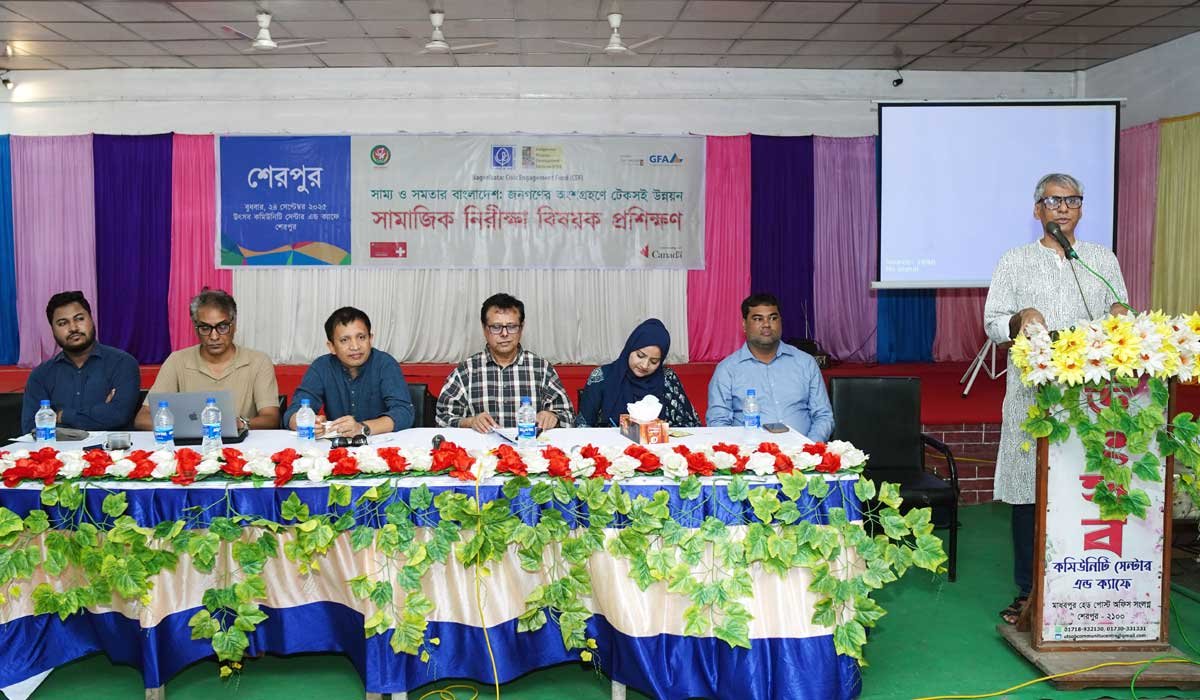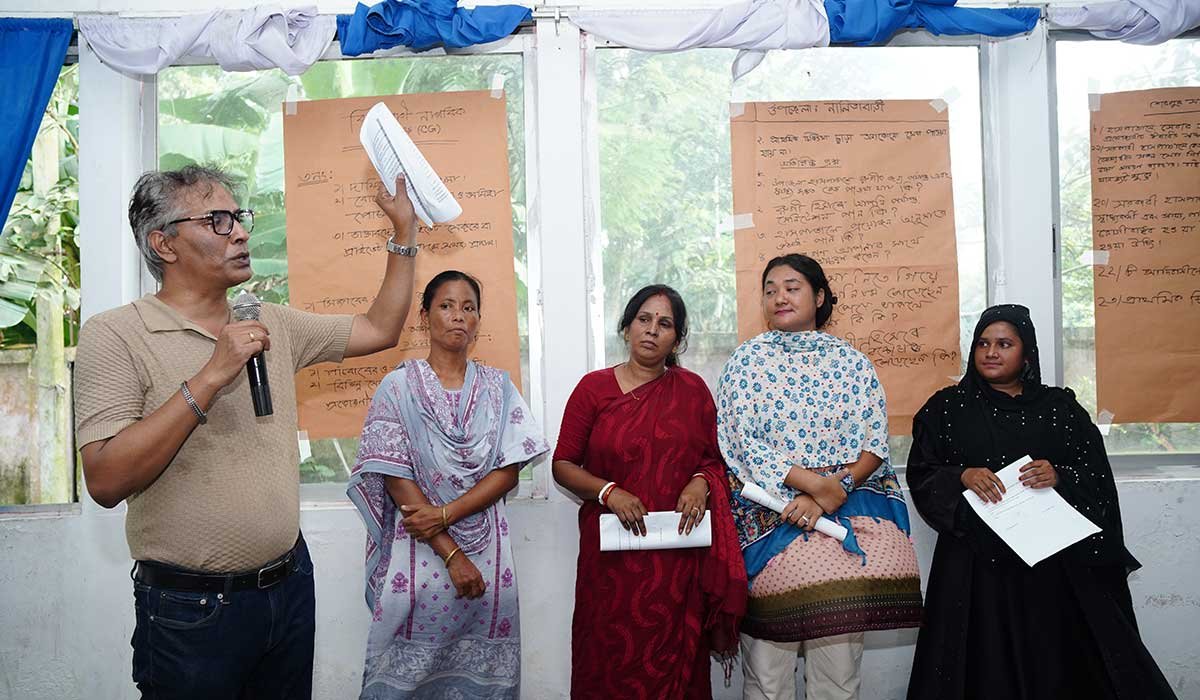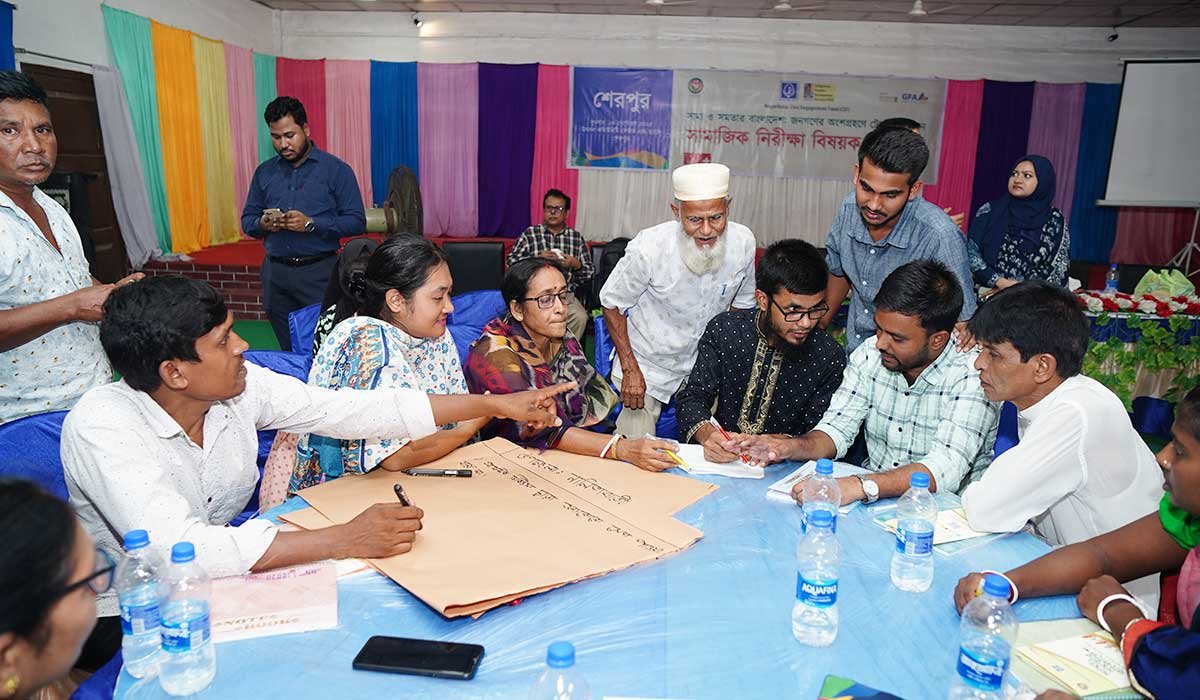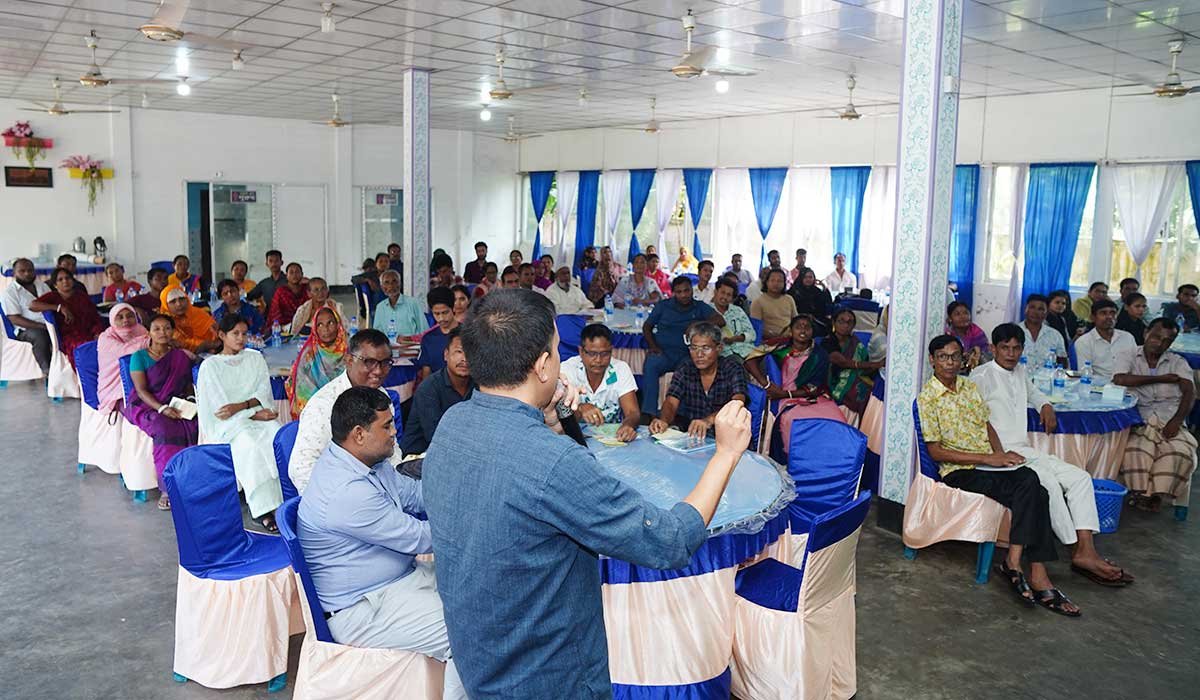
A training session on social audits for community groups in Sherpur district was organised on 24 September 2025 under the Nagorikata: Civic Engagement Fund (CEF) programme. This training was organised by the Centre for Policy Dialogue (CPD) in partnership with the Indigenous Peoples Development Services (IPDS). This initiative is supported by the Embassy of Switzerland and Global Affairs Canada, which is managed by the GFA Consulting Group. The programme seeks to strengthen governance and encourage active civic engagement within local communities.
Around 80 members from citizen groups (CGs) across Sherpur Sadar, Jhinaigati, Nalitabari, and Nakla upazilas attended the session, along with four community volunteers and a field coordinator. The main objective of the training was to equip participants with practical skills for conducting social audits and emphasise the importance of transparency and accountability in governance.

The training covered several essential topics, including the background and objectives of social audits, the role of CGs and community volunteers in promoting good governance, and the tools and processes needed for effective social audits.
In addition to theoretical sessions, participants took part in hands-on activities, including mock trials to practice data collection methods such as surveys, focus group discussions (FGDs), and key informant interviews (KIIs). The session also focused on aligning social audit tools with human rights-based approaches (HRBA), Leave No One Behind (LNOB) principles, and Gender Equality and Social Inclusion (GESI) standards.
Mr Ripon Banai, Programme Director of IPDS, and Mr Avra Bhattacharjee, Additional Director of Dialogue and Outreach at CPD, opened the event with welcome remarks, highlighting the significance of citizen engagement in governance.

The first session, titled ‘Background and Objectives of the Training Workshop’, was led by Dr Dwijen Mallick, Project Coordinator of the Nagorikata-CEF programme, and he outlined the purpose of the workshop and set the stage for the discussions to follow.
Md Nurul Islam, Capacity Development and Management Expert at Nagorikata: CEF, provided a presentation on the Overview of Nagorikata: CEF Programme, giving attendees an in-depth look at the programme’s objectives and its role in strengthening civic engagement.
Following this, Mr Mozahidul Islam Noyan, Project Consultant for Nagorikata: CEF, CPD, facilitated a session where participants were encouraged to share their expectations from the training, fostering an interactive environment.
The training continued with a detailed session on Social Audit for the Implementation of SDGs and Good Governance, led by Mr Joyanto L Raksham, Field Coordinator, with support from Mr Noyan and Mr Jaouadul Karim, M&E Associate at CPD. This session focused on the vital role of Citizen Groups (CGs) and Community Volunteers (CVs) in social audits and their contribution to achieving the SDGs.
In the following group work session, participants worked on Survey Questions for Social Audits and Simulation Exercises, facilitated by Mr Raksham and the CVs, with assistance from Mr Noyan and Mr Karim.
The training then shifted to the afternoon sessions, where participants were introduced to Social Audit Tools and Processes, specifically aligned with HRBA (Human Rights-Based Approach), LNOB (Leave No One Behind), and GESI (Gender Equality and Social Inclusion) principles. This was again led by Mr Raksham and the Nagorikata-CEF CPD team, providing participants with a hands-on approach to these crucial tools.
The day’s final activities included a Mock Trial on Data Collection, where participants practiced using Survey, FGD (Focus Group Discussion), and KII (Key Informant Interview) formats and checklists. This session was also facilitated by Mr Raksham and the team, culminating in a Report Writing exercise and a Demonstration of Public Hearing.

Ms Zarrin Tasnim Mridula, Communication and Outreach Expert of Nagorikata: CEF, also joined the session and encouraged participants to actively engage with the training and apply the learnings in their communities.
This training marked an essential step in empowering local communities, providing them with the tools to promote greater accountability and transparency in governance, and helping them contribute to the achievement of sustainable development goals.


